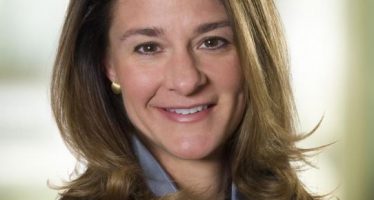Martin Höfeler: Fashions Come and Go, but Style — and Environment — are Forever

Armedangels CEO: Martin Höfeler
It’s all about sustainability in 2022, and there’s likely to be no lessening of focus in coming decades.
Sustainability matters, in a way that other modern notions and buzzwords don’t. People matter; the planet matters. In the fashion industry, brands — and, perhaps more importantly, consumers — are carrying our collective environmental conscience, and shouting their call for unity from the rooftops.
Enter Martin Höfeler, CEO of German fashion firm Armedangels, who sees no dichotomy here. There’s no issue, he has always believed, that makes attractive fashion and environmentally friendly fashion incompatible.
Höfeler’s aim from the word go has been to combine sustainability and design. And the “word go” was uttered some time ago — before such attention was paid to the planet, its resources, or its people. “Ten years ago,” he told New Zealand’s the-spin-off.com back in 2016, “we only existed as an idea on white paper. Five years (earlier), we were known as an online shop for sustainable T-shirts and prints. Today, we belong to the best-known fair fashion labels in Germany — in wholesale, and with our own online shop.”
Five years may be a long time in fashion, but a decade — especially one prior to 2016; the company was founded in 2007 — would take us back to the dark ages in terms of awareness of global issues. Martin Höfeler was one of the pioneers, an early adopter who has benefitted from astute choices made at the right time.
“Fair fashion” is his continued focus, and — as you may have guessed — in 2022, he is eyeing-up the next 10 years to follow through on his ideas and ideals. His values haven’t changed one jot.
Of course, it’s one thing to run a business in a sustainable way, to do everything “right” in all the important ways. It’s another to fulfil a fashionista’s role: to give people what they want — before they know they want it. Höfeler has not been fazed.
As far as Höfeler is concerned; his mission is ongoing, and his creative output has not faltered. “We want to convince people to rethink their buying behaviour,” he famously said.
So much for the continued sustainability focus, all-important to his personal and professional quest. Höfeler has juggled those human and environmental values with the maintenance and expansion of an constantly evolving fashion brand. “Nobody wants to wear an ugly T-Shirt, no matter how sustainable it is in production,” he was once quoted as saying.
Climate change is one of the most prominent threats facing the modern world, and it’s a doozy. Solutions, in terms of resetting the clock, are — for the moment, at least — out of reach. And the fashion industry is part of the problem. It’s rated as one of the dirtiest industries — and in a world of nukes, fossil fuels and microplastics, that’s saying a lot.
Armedangels was founded, Höfeler told FashionUnited, not “to make fashion, but to make change for planet and people”. Colours nailed to the mast, right there.
While the first years may have been slow, as Höfeler and his team overcame general ignorance and apathy, but 2021 came with its own special challenges.
Special challenges, however, are bread and butter to the German fashionista. One of the company’s visions “is to change things beyond its own product by supporting NGOs (and) activists on the frontline”.
In March last year, his Solidarity Series was introduced. The spotlight was, thanks to events in the US, on black and indigenous voices. A T-shirt edition was created in collaboration with US activist Tamika D Mallory, featuring her Speech of a Generation, delivered after the death of George Floyd.
During the 2021 federal election, Armedangels — in co-operation with the GermanZero organisation — designed a “1.5°” T-shirt to coax more climate-friendly measures from politicians. All profits from that went to GermanZero. The motto: “Change politics, not climate.”
You may have an interest in also reading…
Chinoy Gets Angry
“Daniel and I want to dedicate this award to all the heroes working on the ground in Pakistan, including Dr.
Our Hero Melinda Gates: No Little Woman
The Bill & Melinda Gates Foundation is the largest transparently operated private foundation in the world. Its global aims are
Replacing Aid with Trade
Modern India, boasting its own space programme spends 70 billion pounds annually in fighting poverty and no longer needs British


















































































